Mortality
How to submit an article:
- Registered users can submit any published journal article that has a unique DOI (Digital Object Identifier) name or link to Research Hub.
- For example, you can paste the full DOI link:
https://doi.org/10.1109/5.771073or just the DOI name:10.1109/5.771073into the field above and click submit. - The person who is first to submit a valid article to Research Hub will forever be credited for it, and every article submission earns you +6 Research Points.
Related Topics
Published research studies are articles that present the findings of original research that has undergone a peer-review process and has been made publicly available in scholarly journals, books or other media.
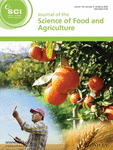
Carrot and carotene and multiple health outcomes: an umbrella review of the evidence
2023 Jan 17 Journal of the Science of Food and Agriculture Yi X, Li J, Liao D, Peng G, Zheng X, Xu H, et al.
Review Article Cataracts Carotene Lung Cancer Carrot Anticancer Stomach Cancer Breast Cancer Alzheimer's Disease Urothelial Cancer SunburnCarrot and carotene consumption could diminish the risk of a wide range of negative health consequences, including multiple types of cancer.
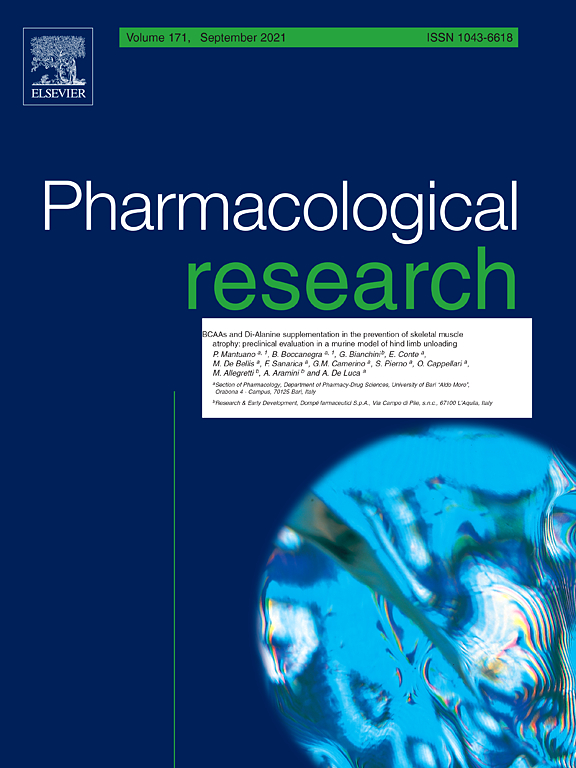
Coffee or tea: Anti-inflammatory properties in the context of atherosclerotic cardiovascular disease prevention
2023 Jan Pharmacological Research Surma S, Sahebkar A, Banach M
Review Article Meta-Analysis Cardiovascular Disease Coffee Anti-Inflammatory TeaConsumption of tea and coffee may possibly provide anti-inflammatory effects, contributing to reduced cardiovascular risk and mortality.
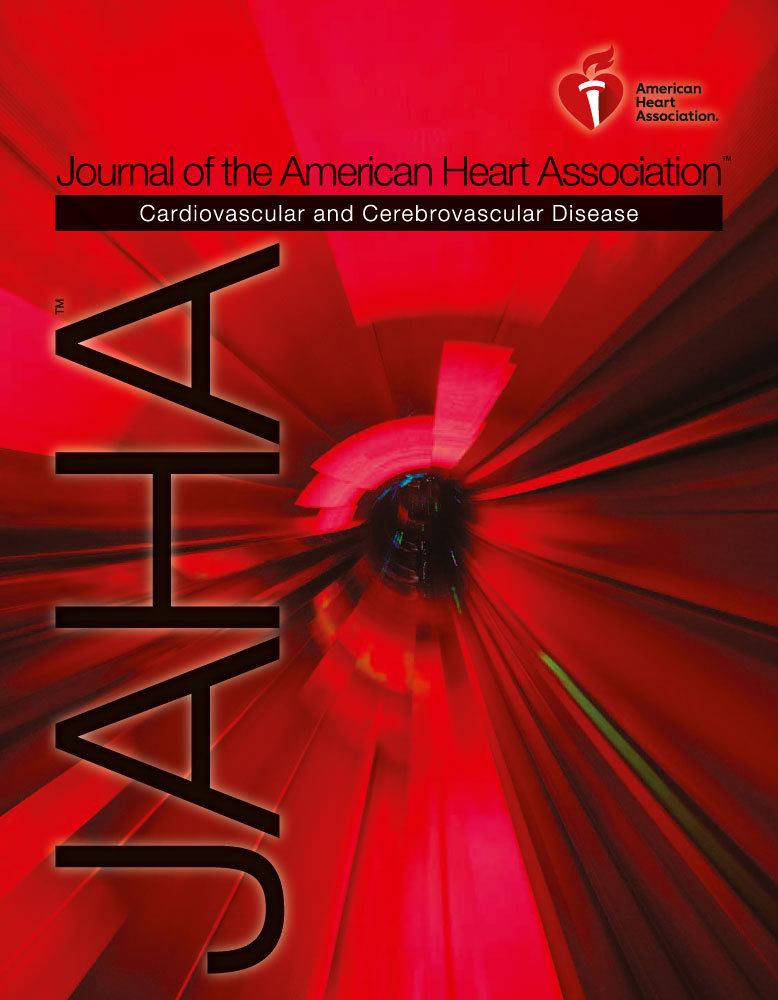
Coffee and Green Tea Consumption and Cardiovascular Disease Mortality Among People With and Without Hypertension
2023 Jan 17 Journal of the American Heart Association Teramoto M, Yamagishi K, Muraki I, Tamakoshi A, Iso H
Cohort Study High Blood Pressure Green Tea CoffeeHeavy coffee consumption increases the risk of cardiovascular disease mortality in individuals with severe hypertension, while green tea consumption does not.
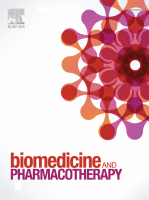
A Chinese classical prescription Qianjinweijing Decoction in treatment of lung cancer: An overview
2022 Dec Biomedicine & Pharmacotherapy Liu PY, Zhao QY, Xu Y, Ye JX, Tan JR, Hou J, et al.
QJWJ has the effects of clearing lung and reducing phlegm, removing pus by blood stasis, and is a representative formula for the treatment of lung cancer. Both experimental and clinical studies have confirmed that this prescription has good effect and broad prospects in the treatment of lung cancer, but there are still shortcomings, such as insufficient research on pharmacodynamics and pharmacological mechanism, lack of sufficient persuasion and theoretical basis.
Review Article Qian Jin Wei Jing Cancer Treatment Support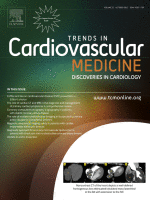
Coffee and tea on cardiovascular disease (CVD) prevention
2022 Oct Trends in Cardiovascular Medicine Chieng D, Kistler PM
Review Article Green Tea Cardiovascular Disease CoffeeConsuming 2-3 cups of coffee daily can help prevent cardiovascular disease and drinking at least 3 cups of green tea has similar benefits.
Research insights are moderated by the Research Hub team and offer an at-a-glance overview of interesting research findings.

2023 Journal of the Science of Food and Agriculture
Carrot and carotene consumption could diminish the risk of a wide range of negative health consequences, including multiple types of cancer.
Review Article Alzheimer's Disease Anticancer Breast Cancer Carotene Carrot
Carrot and carotene and multiple health outcomes: an umbrella review of the evidence
Yi X, Li J, Liao D, Peng G, Zheng X, Xu H, et al.

2023 Journal of the American Heart Association
Heavy coffee consumption increases the risk of cardiovascular disease mortality in individuals with severe hypertension, while green tea consumption does not.
Cohort Study Coffee Green Tea High Blood Pressure
Coffee and Green Tea Consumption and Cardiovascular Disease Mortality Among People With and Without Hypertension
Teramoto M, Yamagishi K, Muraki I, Tamakoshi A, Iso H

2023 Pharmacological Research
Consumption of tea and coffee may possibly provide anti-inflammatory effects, contributing to reduced cardiovascular risk and mortality.
Review Article Anti-Inflammatory Cardiovascular Disease Coffee Tea
Coffee or tea: Anti-inflammatory properties in the context of atherosclerotic cardiovascular disease prevention
Surma S, Sahebkar A, Banach M

2022 Trends in Cardiovascular Medicine
Consuming 2-3 cups of coffee daily can help prevent cardiovascular disease and drinking at least 3 cups of green tea has similar benefits.
Review Article Cardiovascular Disease Coffee Green Tea
Coffee and tea on cardiovascular disease (CVD) prevention
Chieng D, Kistler PM

2022 Frontiers in Nutrition
Moderate consumption of carrots is associated with a lower incidence of colorectal cancer, implying a potential cancer prevention effect in a certain dose-range.
Cohort Study Carotene Carrot Colorectal Cancer
Association of Dietary Carrot/Carotene Intakes With Colorectal Cancer Incidence and Mortality in the Prostate, Lung, Colorectal, and Ovarian Cancer Screening Trial
Jiang Z, Chen H, Li M, Wang W, Fan C, Long F
Review Articles
Review articles summarise and critically evaluate the current state of research on a specific topic or field by synthesising multiple primary research studies.

Carrot and carotene and multiple health outcomes: an umbrella review of the evidence
2023 Jan 17 Journal of the Science of Food and Agriculture Yi X, Li J, Liao D, Peng G, Zheng X, Xu H, et al.
Review Article Cataracts Carotene Lung Cancer Carrot Anticancer Stomach Cancer Breast Cancer Alzheimer's Disease Urothelial Cancer SunburnCarrot and carotene consumption could diminish the risk of a wide range of negative health consequences, including multiple types of cancer.

Coffee or tea: Anti-inflammatory properties in the context of atherosclerotic cardiovascular disease prevention
2023 Jan Pharmacological Research Surma S, Sahebkar A, Banach M
Review Article Meta-Analysis Cardiovascular Disease Coffee Anti-Inflammatory TeaConsumption of tea and coffee may possibly provide anti-inflammatory effects, contributing to reduced cardiovascular risk and mortality.

A Chinese classical prescription Qianjinweijing Decoction in treatment of lung cancer: An overview
2022 Dec Biomedicine & Pharmacotherapy Liu PY, Zhao QY, Xu Y, Ye JX, Tan JR, Hou J, et al.
QJWJ has the effects of clearing lung and reducing phlegm, removing pus by blood stasis, and is a representative formula for the treatment of lung cancer. Both experimental and clinical studies have confirmed that this prescription has good effect and broad prospects in the treatment of lung cancer, but there are still shortcomings, such as insufficient research on pharmacodynamics and pharmacological mechanism, lack of sufficient persuasion and theoretical basis.
Review Article Qian Jin Wei Jing Cancer Treatment Support
Coffee and tea on cardiovascular disease (CVD) prevention
2022 Oct Trends in Cardiovascular Medicine Chieng D, Kistler PM
Review Article Green Tea Cardiovascular Disease CoffeeConsuming 2-3 cups of coffee daily can help prevent cardiovascular disease and drinking at least 3 cups of green tea has similar benefits.
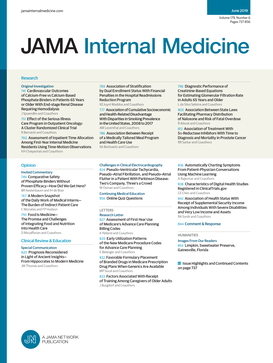
Evaluating the Association Between Low-Density Lipoprotein Cholesterol Reduction and Relative and Absolute Effects of Statin Treatment
2022 May 01 JAMA Internal Medicine Byrne P, Demasi M, Jones M, Smith SM, O’Brien KK, DuBroff R
Systematic Review Meta-Analysis Stroke StatinClinical Trials
Clinical trials are research studies that involve people and are conducted to evaluate the safety and efficacy of new treatments or interventions, such as drugs, medical devices, or behavioural therapies.
Study Protocols
Published study protocols are detailed plans that outline the objectives, methodology, statistical analyses, and organisation of a research study that have been made publicly available for others to review and use as a reference.
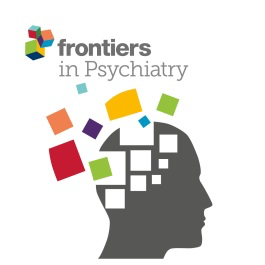
Acupuncture for Subthreshold Depression: Study Protocol for a Randomized Controlled Trial
2022 Jan 27 Frontiers in Psychiatry Xian J, Wang L, Sun M, Wang X, Zang XM, Yu HJ, et al.
The protocol uses a randomized controlled trial to examine the effectiveness of acupuncture for subthreshold depression and to further study the mechanisms of its effect.
Study Protocol Acupuncture
Efficacy and safety of acupuncture combined with Chinese herbal medicine in the treatment of primary liver cancer
2021 Oct 08 Medicine Dong S, Zhuang X, Yangyang L, Yan L, Houbo D, Song W, et al.
This study will provide evidence-based medical evidence for the treatment of PLC with a combination of acupuncture and Chinese herbal medicine, and provide new ideas and methods for the treatment of PLC.
Study Protocol Acupuncture Liver Cancer Chinese Herbal Medicine
A protocol for systematic review and meta-analysis of the effect of acupoint therapy for essential hypertension
2020 Oct 2 Medicine Zhang XD, Zhao JP, Wu JJ, Xie Q, Wang Y, Liu QG
Acupuncture has been reported to have potential effects in treating hypertension. This study provides the evidence of acupuncture therapy for essential hypertension.
Study Protocol High Blood PressurePresentation Slides

Review Article
Carrot and carotene consumption could diminish the risk of a wide range of negative health consequences, including multiple types of cancer.
Yi X, Li J, Liao D, Peng G, Zheng X, Xu H, Zhang T, Ai J

Cohort Study
Heavy coffee consumption increases the risk of cardiovascular disease mortality in individuals with severe hypertension, while green tea consumption does not.
Teramoto M, Yamagishi K, Muraki I, Tamakoshi A, Iso H

Review Article
Consumption of tea and coffee may possibly provide anti-inflammatory effects, contributing to reduced cardiovascular risk and mortality.
Surma S, Sahebkar A, Banach M

Review Article
Consuming 2-3 cups of coffee daily can help prevent cardiovascular disease and drinking at least 3 cups of green tea has similar benefits.
Chieng D, Kistler PM

Cohort Study
Moderate consumption of carrots is associated with a lower incidence of colorectal cancer, implying a potential cancer prevention effect in a certain dose-range.
Jiang Z, Chen H, Li M, Wang W, Fan C, Long F

Review Article
Coffee consumption may contribute to the prevention of several inflammatory diseases and types of cancer, with reduced mortality risk deemed safe up to 400mg of caffeine per day.
Barrea L, Pugliese G, Frias-Toral E, El Ghoch M, Castellucci B, Chapela SP, Carignano MA, Laudisio D, Savastano S, Colao A, Muscogiuri G
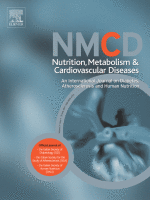
Systematic Review
Drinking coffee may be linked to lower mortality risk in type 2 diabetes patients.
Shahinfar H, Jayedi A, Khan TA, Shab-Bidar S

Cohort Study
Regular consumption of chocolate relates to lowered risk of death from all causes, cardiovascular disease, and Alzheimer’s disease, particularly in non-smokers.
Zhong GC, Hu TY, Yang PF, Peng Y, Wu JJ, Sun WP, Cheng L, Wang CR

Traditional Chinese medicine could reduce the all-cause mortality in COVID-19 patients, inhibit virus replication and transcription, and attenuate the cytokine storm and immune deficiency caused by the SARS-CoV-2.
Xuedong An, YueHong Zhang, Liyun Duan, De Jin, Shenghui Zhao, RongRong Zhou, Yingying Duan, Fengmei Lian, Xiaolin Tong
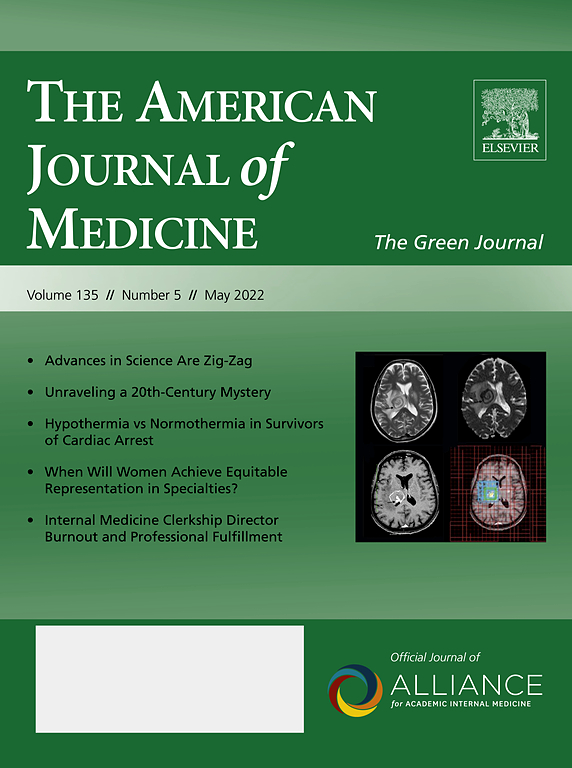
Systematic Review
Coffee consumption, particularly boiled coffee, may increase levels of certain cardiovascular risk markers, but no strong link was found to anti-inflammatory effects.
Daneschvar HL, Smetana GW, Brindamour L, Bain PA, Mukamal KJ
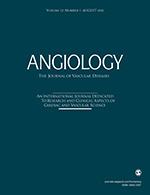
Systematic Review
Epidemiological studies suggest that the consumption of spicy chilli food is associated with reduced risk of all-cause as well as heart disease–related mortality.
Ofori-Asenso R, Mohsenpour MA, Nouri M, Faghih S, Liew D, Mazidi M.

Among the patients hospitalized for COVID-19, the use of Qingfei Paidu Tang was associated with halving the risk of mortality, without raising the risk of acute liver injury or acute kidney injury.
Lihua Zhang, Xin Zheng, Xueke Bai, Qing Wang, Bowang Chen, Haibo Wang, Jiapeng Lu, Shuang Hu, Xiaoyan Zhang, Haibo Zhang, Jiamin Liu, Ying Shi, Zhiye Zhou, Lanxia Gan, Xi Li, Jing Li

Theoretical Article
Coffee, like many fruits and vegetables, activates a cellular response that boosts antioxidants and repair enzymes, which contributes to a lower risk of several diseases.
Kolb H, Kempf K, Martin S
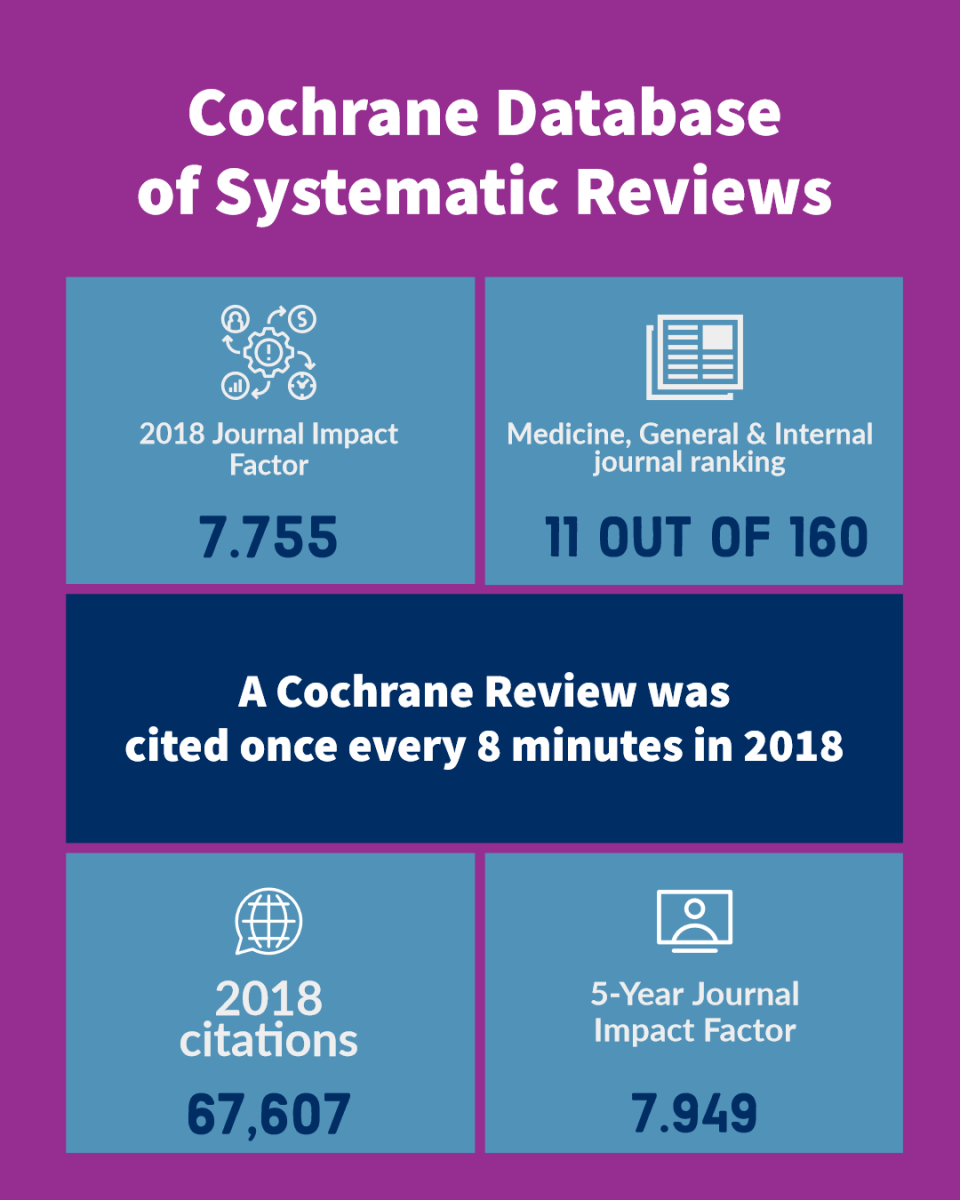
Systematic Review
Green tea, containing antioxidative catechins, may possess some beneficial effects in reducing the risk of specific types of cancer.
Filippini T, Malavolti M, Borrelli F, Izzo AA, Fairweather-Tait SJ, Horneber M, Vinceti M
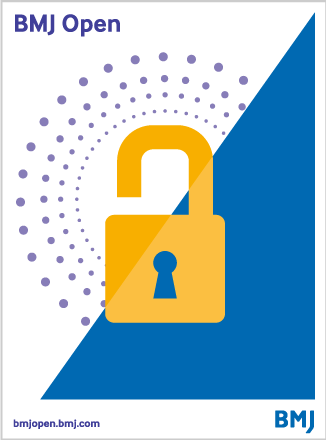
Systematic Review
Chinese herbal medicine may be effective and safe for treating diabetic kidney disease, although evidence quality varies.
Zhang L, Yang L, Shergis J, Zhang L, Zhang AL, Guo X, Qin X, Johnson D, Liu X, Lu C, Xue CC, Mao W
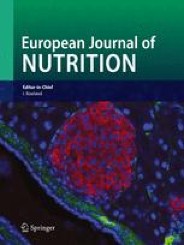
Systematic Review
Consumption of chocolate shows a possible slight reduction in risk for coronary heart disease and stroke, with no association with other chronic diseases studied.
Morze J, Schwedhelm C, Bencic A, Hoffmann G, Boeing H, Przybylowicz K, Schwingshackl L
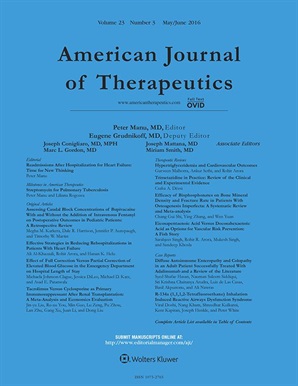
Review Article
Mg is essential in the metabolism of vitamin D, and taking large doses of vitamin D can induce severe depletion of Mg. Adequate magnesium supplementation should be considered as an important aspect of vitamin D therapy.
Reddy P, Edwards LR

Systematic Review
Acupuncture and acupressure show potential for improving cervical readiness and certain birthing outcomes, their impact on reducing caesarean section rates remains inconclusive.
Smith CA, Armour M, Dahlen HG
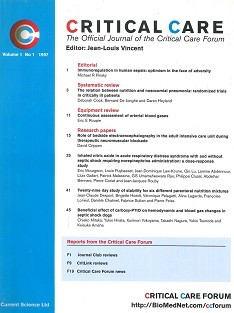
Systematic Review
Parenteral glutamine supplementation given in conjunction with nutrition support continues to be associated with a significant reduction in hospital mortality and hospital length of stay.
Paul E Wischmeyer, Rupinder Dhaliwal, Michele McCall, Thomas R Ziegler & Daren K Heyland
Executive Summary
Write an executive summary in the form of a blog article on the topic of "Research into Chinese medicine treatment for Mortality" summarising the research below and using language that can be easily understood by patients and avoiding medical jargon using a professional and caring tone of voice.
Write an executive summary in the form of a blog article on the topic of "Researched Chinese medicine treatments for Mortality" summarising the research below in an objective and easy to understand way, and using language that can be easily understood by patients. Group the article into Chinese medicine treatments first, followed by nutrition and other treatments. Avoid using medical jargon and use a professional and caring tone of voice.
Write me a concise but easy to understand executive summary on the topic of "Chinese medicine treatments for Mortality" based on the following research that I will give you. Your summary should be 2 paragraphs long in Australian English spelling and include references to the studies.
A Review Article published in 2023 in the journal Journal of the Science of Food and Agriculture found that Carrot and carotene consumption could diminish the risk of a wide range of negative health consequences, including multiple types of cancer. An umbrella review methodology was adopted to identify connections between carrot and carotene intake and various health outcomes. We turned to databases such as Web of Science, PubMed, and Embase to find the needed data. The analysis included the collected evidence from both interventional and observational studies that focused on carrots, carotene, and any related health impact. To estimate the summary effect size for each correlation, both random and fixed effects models were employed. The study reviewed a total of 1329 studies and utilized the data from 30 meta-analyses with 26 health outcomes that fit the eligibility requirements. These featured outcomes related to various types of cancer, fractures, age-related cataract, sunburn, and Alzheimer's disease. The associations were analyzed between the health outcomes and the intake of carrots, intake of carotene, and serum carotene levels.
A Cohort Study published in 2023 in the journal Journal of the American Heart Association found that Heavy coffee consumption increases the risk of cardiovascular disease mortality in individuals with severe hypertension, while green tea consumption does not. With the use of the Japan Collaborative Cohort Study, researchers assessed 18,609 participants, both male and female, aged between 40 to 79 years. These participants had varying blood pressure levels, categorized into optimal and normal BP, high-normal BP, and two stages of hypertension. They completed a questionnaire about their lifestyle, diet, and medical history, and underwent health examinations, which were followed up until 2009. The association of coffee and green tea consumption on cardiovascular disease mortality was then calculated using a Cox proportional hazard model. It was found over an 18.9 year follow-up period that heavy coffee consumption was linked to increased risk of cardiovascular disease mortality among those suffering from the second to third grade of hypertension. In stark contrast, people with optimal and normal, high-normal blood pressure and first grade hypertension did not show such associations between coffee consumption and cardiovascular disease mortality. Interestingly, the risk of cardiovascular disease mortality was not found to be increased across any blood pressure categories in relation to green tea consumption.
A Review Article published in 2023 in the journal Pharmacological Research found that Consumption of tea and coffee may possibly provide anti-inflammatory effects, contributing to reduced cardiovascular risk and mortality. The methodology of this narrative review examined the potential anti-inflammatory properties of consuming tea and coffee as a factor in reducing the risk of cardiovascular disease. This was done by analyzing a plethora of studies and meta-analyses that explored the impact of diet on inflammation, with a keen focus on the consumption of these beverages. The studies looked at a variety of risk factors for atherosclerotic cardiovascular disease, including inflammation biomarkers such as C-reactive protein, along with the impact of modern lipid-lowering treatments. In discussing the results, it was noticed that inconsistent findings were produced from the analysed studies which made a conclusive determination challenging. However, a trend was observed where drinking tea and coffee seemed to raise adiponectin levels, reduce reactive oxygen species and lower low-density lipoprotein cholesterol levels. Despite these potential anti-inflammatory properties of tea and coffee being somewhat uncertain due to various confounding factors, their consumption is still recommended as part of a healthy diet.
A Review Article published in 2022 in the journal Trends in Cardiovascular Medicine found that Consuming 2-3 cups of coffee daily can help prevent cardiovascular disease and drinking at least 3 cups of green tea has similar benefits. In this review, researchers examined the effects of habitual coffee and tea consumption on cardiovascular disease (CVD) prevention. Specifically, they studied the association between 2-3 cups of coffee or tea consumed daily and their beneficial effects on metabolic syndrome, including hypertension and diabetes mellitus, focusing on how these popularly consumed beverages might affect lipid levels. The analysis of findings drew a correlation between moderate coffee intake and a reduced risk of several cardiovascular conditions, such as coronary heart disease, heart failure, arrhythmia, stroke, and CVD, in addition to lowering mortality from all causes. It was also noted that the benefits extended to higher tea consumption as well, particularly in the case of green tea, where it led to improved survival rates in population-based studies.
A Cohort Study published in 2022 in the journal Frontiers in Nutrition found that Moderate consumption of carrots is associated with a lower incidence of colorectal cancer, implying a potential cancer prevention effect in a certain dose-range. The research analysed the dietary intake of carrots/carotene and their relationship to colorectal cancer incidence and mortality in a cohort from the Prostate, Lung, Colorectal, and Ovarian Cancer Screening. The study involved 101,680 participants who joined the cohort between November 1993 and July 2001. The hazard ratios were estimated through multivariable Cox regression analyses. Additionally, subgroup analyses and interaction tests were conducted to check for potential effect modifiers. A generalised additive model was used to examine the non-linear trend of the exposure to cancer-related outcomes. In total, the study documented 1,100 colorectal cancer cases and 443 cancer-related deaths. It was discovered that dietary carrot intake was linked to a 21% lower risk of colorectal cancer incidence for those in the 4th quintile group compared to the lowest quintile group. Increase in carrot intakes, on a per standard deviation, did not reveal any statistically significant associations with the disease incidence. There were no significant associations found between dietary α-, and β-carotene intake and colorectal cancer incidence, nor were there any associations between carrot/carotene intakes and cancer mortality. They also observed no non-linear dose-response relationships between dietary carrot, α-, and β-carotene intake and colorectal cancer incidence and mortality. Notably, the study found that smoking status could potentially modify the association of dietary carrot intake with incidence of colorectal cancer, but not mortality.
A Review Article published in 2021 in the journal Critical Reviews in Food Science and Nutrition found that Coffee consumption may contribute to the prevention of several inflammatory diseases and types of cancer, with reduced mortality risk deemed safe up to 400mg of caffeine per day. The methodology used in this scholarly review was based on an extensive literature review using the PubMed/Medline database. As the primary research tool, this database facilitated the authors' collation and analysis of relevant studies concerning the impact of coffee consumption on health outcomes. The focus was to determine both the positive and negative aspects of coffee consumption, with an additional aim of providing dosage recommendations. The data collated from these studies was then summarised and analysed through a narrative approach, making the findings more digestible and interpretable. The findings suggested that coffee consumption may play a significant role in preventing inflammatory and oxidative stress-related diseases such as obesity, metabolic syndrome and type 2 diabetes. In addition, findings indicated that coffee consumption also seemed to have an association with a lower incidence of several types of cancer and a reduction in the risk of all-cause mortality. However, notable is the need for a time gap between coffee consumption and the intake of some drugs to avoid potential interactions. It was also concluded that the consumption of up to 400mg/day of caffeine was generally found to be safe for the average person.
A Systematic Review published in 2021 in the journal Nutrition, Metabolism and Cardiovascular Diseases found that Drinking coffee may be linked to lower mortality risk in type 2 diabetes patients. In this study, the researchers conducted an exhaustive literature search through PubMed, Scopus, and Web of Sciences up to November 2020. They were looking for prospective cohort studies that evaluated the link between coffee consumption and the risk of cardiovascular disease and mortality in patients with type 2 diabetes. Two reviewers took on the work of extracting relevant data and assessing the certainty of evidence using the GRADE approach. A random-effects model was deployed to estimate hazard ratios. Dose-response connections were modeled using a one-stage mixed-effects meta-analysis. The researchers included ten prospective cohort studies that totalled 82,270 cases. The results showed an interesting trend: compared to those who did not consume coffee, the hazard ratios were consistently lower for mortality outcomes and cardiovascular disease, especially where the consumption rate was four cups per day. Importantly, no such association was found for either cancer mortality or stroke. The evidence suggested a potential inverse monotonic association between coffee drinking and mortality across all causes and cardiovascular disease, alongside a linear association for coronary heart disease and total cardiovascular events. The degree of certainty in these results was moderate for all-cause mortality, but was low or very low for all other reported outcomes.
A Cohort Study published in 2021 in the journal Aging found that Regular consumption of chocolate relates to lowered risk of death from all causes, cardiovascular disease, and Alzheimer’s disease, particularly in non-smokers. The study traps a population-based cohort of 91,891 participants aged between 55-74 years from across the United States. The consumption of chocolate by these participants is gauged through a food frequency questionnaire. The Cox regression model was utilized to generate risk estimates. In an average monitoring period of 13.5 years, 19,586 all-cause deaths were recorded. In the discussion of the outcomes, the study reveals an inverse correlation between regular chocolate intake and all-cause mortality. This advantage was more significant in those participants who never smoked compared to current or ex-smokers. A stronger inverse association was found for deaths from cardiovascular disease and Alzheimer's disease. A nonlinear dose-response pattern was discovered for all-cause and cardiovascular deaths, with the least risk seen at a chocolate intake of 0.7 and 0.6 servings per week, respectively.
A published in 2021 in the journal Biomedicine & Pharmacotherapy found that Traditional Chinese medicine could reduce the all-cause mortality in COVID-19 patients, inhibit virus replication and transcription, and attenuate the cytokine storm and immune deficiency caused by the SARS-CoV-2. Presently, there is good evidence that TCM can effectively alleviate the symptoms of patients with suspected and confirmed COVID-19, delay the progression from mild and moderate to severe and critical disease, and reduce severe and critical all-cause mortality. The role of TCM is related to affecting the transcription, replication, and binding of SARS-CoV-2 to the host and attenuating the cytokine storm and weak immunity in patients with COVID-19.
A Systematic Review published in 2021 in the journal The American Journal of Medicine found that Coffee consumption, particularly boiled coffee, may increase levels of certain cardiovascular risk markers, but no strong link was found to anti-inflammatory effects. Methodically considering pre-selected databases such as PubMed, Embase, CINAHL and more, this study rigorously searched for randomized controlled trials to analyse the impacts of coffee consumption on inflammatory indicators of cardiovascular risk. Duplicate data and trials that did not meet the study's criteria were removed. The remaining 17 studies that passed scrutiny were included in the analysis, looking particularly at effects of coffee on cholesterol levels, apolipoprotein B levels and interleukin 6 levels. This comprehensive review resulted in interesting findings. Boiled coffee emerged as a potential culprit for increased levels of total and low-density lipoprotein cholesterol along with apolipoprotein B. Filtered coffee, on the other hand, did not show similar trends. In one trial, caffeinated coffee showed a noteworthy increase in blood interleukin 6 levels compared to participants who did not consume coffee. However, no robust anti-inflammatory effects connected to coffee consumption could be confidently ascertained to be a significant factor in reducing mortality rates related to cardiovascular disease.
A Systematic Review published in 2021 in the journal Angiology found that Epidemiological studies suggest that the consumption of spicy chilli food is associated with reduced risk of all-cause as well as heart disease–related mortality. This systematic review and meta-analysis examined the association between spicy food (chilli pepper, chilli sauce, or chilli oil) consumption with cardiovascular and all-cause mortality. Medline and EMBASE were searched from their inception until February 2020 to identify relevant prospective cohort studies. Hazard ratios (HRs)/relative risk (RRs) were pooled via random-effect meta-analysis. Of the 4387 citations identified, 4 studies (from the United States, China, Italy, and Iran) were included in the meta-analysis. The included studies involved a total of 564 748 adults (aged ≥18 years; 51.2% female) followed over a median duration of 9.7 years. The pooled data suggested that compared with people who did not regularly consume spicy food (none/<1 d/wk), regular consumers of spicy food experienced a 12% (HR/RRpooled 0.88, 95% CI, 0.86-0.90; I 2 = 0%) lower risk of all-cause mortality. Moreover, spicy food consumption was associated with significant reduction in the risk of death from cardiac diseases (HR/RRpooled 0.82, 0.73-0.91; I 2 = 0%), but not from cerebrovascular disorders (HR/RRpooled 0.79, 0.53-1.17; I 2 = 72.2%). In conclusion, available epidemiological studies suggest that the consumption of spicy chilli food is associated with reduced risk of all-cause as well as heart disease–related mortality. Further studies in different populations are needed to confirm this association.
A published in 2021 in the journal Phytomedicine found that Among the patients hospitalized for COVID-19, the use of Qingfei Paidu Tang was associated with halving the risk of mortality, without raising the risk of acute liver injury or acute kidney injury. Of the 8939 patients included, 28.7% received QPT. The COVID-19 related mortality was 1.2% among the patients receiving QPT and 4.8% among those not receiving QPT. After adjustment for patient characteristics and concomitant treatments, QPT use was associated with a relative reduction of 50% in-hospital COVID-19 related mortality. This association was consistent across subgroups by sex and age. Meanwhile, the incidences of acute liver injury and acute kidney injury were comparable between patients receiving QPT and those not receiving QPT. The major study limitations included that the study was an observational study based on real-world data rather than a randomized control trial, and the quality of data could be affected by the accuracy and completeness of medical records. In this analysis based on a national registry of hospitalized patients with COVID-19, we first demonstrated that QPT use was associated with halving the risk of in-hospital mortality, without any significant increase in the risk of adverse effects, such as acute liver injury or acute kidney injury. Our findings have provided new evidence and insights regarding the treatment of COVID-19.
A Theoretical Article published in 2020 in the journal Nutrients found that Coffee, like many fruits and vegetables, activates a cellular response that boosts antioxidants and repair enzymes, which contributes to a lower risk of several diseases. The research paper proposes a new perspective on the health benefits of habitual coffee consumption. Instead of focusing on individual elements in coffee, the study compares coffee as a whole, acting as a plant food, with the advantageous properties of many vegetables and fruits. By linking coffee, vegetables and fruits, researchers identified a common mechanism that promotes health - the activation of an adaptive cellular response which leads to an upsurge of proteins involved in cell protection such as antioxidant, detoxifying and repair enzymes. It was also noted that this response hinges on the activation of the Nuclear factor erythroid 2-related factor-2 (Nrf2) system by phenolic phytochemicals, leading to the expression of cell defense genes. The discussion of the paper's results reveals that coffee plays a significant role in health promotion, the main reason being that it is the primary dietary source of phenolic acids and polyphenols in the developed world. Additionally, a supportive function might be associated with the modulation of the gut microbiota by non-digested prebiotic constituents of coffee. Conclusively, the paper suggests that coffee uses similar health promotion pathways as other vegetables and fruits, and that coffee beans could be seen as healthy vegetable food and a leading supplier of dietary phenolic phytochemicals.
A Systematic Review published in 2020 in the journal Cochrane Database of Systematic Reviews found that Green tea, containing antioxidative catechins, may possess some beneficial effects in reducing the risk of specific types of cancer. The study team performed an extensive review of 142 completed and 2 ongoing studies up to January 2019. These studies encompassed all types of epidemiological studies: experimental (randomised controlled trials) and nonexperimental (observational studies with both cohort and case-control design) that looked into the association of green tea consumption with cancer risk or quality of life, or both. Data extraction and methodological quality assessment of these studies were performed independently by two or more review authors. These efforts were organized and the results summarized according to the type of cancer diagnosis. The data was sourced from CENTRAL, MEDLINE, Embase, ClinicalTrials.gov, and referenced lists of earlier reviews and included studies. The studies focused on investigating the links between cancer incidence and mortality rates, safety data, quality of life, and green tea consumption. Numerous studies came with a high degree of methodological quality, based on 'Risk of bias' assessment. The placebos in 11 studies involving a total of 1795 participants were green tea extracts. On another note, the studies indicated some side effects linked to high intakes of green tea with more than a million participants undertaking the non-experimental studies. Despite inconclusive evidence, experimental and nonexperimental epidemiological studies suggested potential beneficial effects of green tea consumption on the overall risk of cancer or on certain types of cancer. Variations of the beneficial effects of green tea were observable across different cancer types, indicating a decrease in rate ratios (RR) in the highest category of green tea consumption versus the lowest. A detailed analysis based on study design exhibited conflicting results for some types of cancers, showing an increased RR in cohort studies and a decreased or no difference in RR in case-control studies. However, the overall interpretability of these RR estimates was limited by methodological issues, such as low study numbers and inconsistencies with cohort study results. Lastly, it's important to note that the majority of included studies were conducted within populations with a high intake of green tea, mainly Asian, thus limiting the general applicability of the findings to other populations.
A Systematic Review published in 2019 in the journal BMJ Open found that Chinese herbal medicine may be effective and safe for treating diabetic kidney disease, although evidence quality varies. The systematic review and meta-analysis comprised randomized controlled trials comparing the use of oral Chinese herbal medicine (CHM) to a placebo, involving a comprehensive search strategy and selecting from over 7000 articles, resulting in 20 studies with a total of 2719 participants. Potential bias was minimized by only including studies that pitted CHM against a placebo. In addition, an a priori subgroups analysis was conducted to identify potential candidate formulae and frequently used herbs for further exploration. Despite these measures, the overall evidence ranged from moderate to very low quality due to unclear randomization procedures, substantial variations in outcome measures, and reduced external validity. The latter was affected by factors such as multi-ingredient herbal formulae, brief follow-up periods, limited numbers of clinical events, and the inclusion of older patients with less advanced disease.
A Systematic Review published in 2019 in the journal European Journal of Nutrition found that Consumption of chocolate shows a possible slight reduction in risk for coronary heart disease and stroke, with no association with other chronic diseases studied. Researchers analyzed information available up to July 2018 from PubMed, Embase, and Web of Science, focusing on prospective studies evaluating the correlation between chocolate intake and rates of all-cause mortality, coronary heart disease, stroke, heart failure, type 2 diabetes, colorectal cancer, and hypertension. Meta-analyses using random-effects models were performed, comparing highest and lowest intake categories, and applying linear and non-linear dose-response studies. The NutriGrade scoring system was utilized to assess the credibility of the evidence obtained. The study's findings were based on 27 identified investigations. It was discovered through linear dose-response meta-analyses that there were no associations of heart failure and type 2 diabetes with each 10 g/day increase in chocolate intake. A small inverse association was found for the risk of coronary heart disease and stroke with each 10 g/day increase in chocolate consumption. The credibility of the evidence was found to be either very low (for all-cause mortality, heart failure, type 2 diabetes, colorectal cancer, or hypertension) or low (for coronary heart disease, stroke).
A Review Article published in 2019 in the journal American Journal of Therapeutics found that Mg is essential in the metabolism of vitamin D, and taking large doses of vitamin D can induce severe depletion of Mg. Adequate magnesium supplementation should be considered as an important aspect of vitamin D therapy. Vitamin D screening assay is readily available, but the reported lower limit of the normal range is totally inadequate for disease prevention. Based on the epidemiologic studies, ∼75% of all adults worldwide have serum 25(OH)D levels of <30 ng/mL. Because of the recent increase in global awareness, vitamin D supplementation has become a common practice, but Mg deficiency still remains unaddressed. Screening for chronic magnesium deficiency is difficult because a normal serum level may still be associated with moderate to severe deficiency. To date, there is no simple and accurate laboratory test to determine the total body magnesium status in humans.
A Systematic Review published in 2017 in the journal Cochrane Database of Systematic Reviews found that Acupuncture and acupressure show potential for improving cervical readiness and certain birthing outcomes, their impact on reducing caesarean section rates remains inconclusive. The study evaluates the efficacy and safety of acupuncture and acupressure for third-trimester cervical ripening or labor induction. Of the 22 trials analyzed, acupuncture's effect on caesarean sections remains inconclusive, while electro-acupuncture appears to influence birthing outcomes like cesarean section rates, instrumental vaginal birth, and spontaneous vaginal birth. The quality of evidence varies, and more comprehensive trials are required to establish their effectiveness and potential safety.
A Systematic Review published in 2014 in the journal Critical Care found that Parenteral glutamine supplementation given in conjunction with nutrition support continues to be associated with a significant reduction in hospital mortality and hospital length of stay. In this comprehensive systematic review, we demonstrate that traditional parenteral glutamine (GLN) supplementation as a component of nutrition support (primarily added to PN) is associated with a significant decrease in hospital mortality and length of hospital stay. GLN supplementation is also associated with trends towards reduced overall mortality, infectious complications and ICU LOS in critically ill patients. The therapeutic effect may be dependent on GLN dose given, with optimal benefit traditionally observed between 0.3 and 0.5 g/kg/d. Thus, we recommend that parenteral GLN supplementation as a component of nutrition support be considered as an approach to improve outcomes of critical illness in selected patients. Our data here suggest that parenteral GLN supplementation, as a component of complete PN and/or EN support, is safe when administered following resolution of shock and multi-organ failure, and with daily doses less the 0.5 g/kg/d.
Moderation Tools
Topic
Sign In
Users not signed in are limited to viewing the 5 most recent items of content.
The relative risk reduction for those taking statins compared with those who did not was 9% for deaths, 29% for heart attacks and 14% for strokes. Yet the absolute risk reduction of dying, having a heart attack or stroke was 0.8%, 1.3% and 0.4% respectively. We found a surprisingly weak and inconsistent relationship between the degree of reduction in LDL cholesterol from taking statins and a person’s chance of having a heart attack or stroke, or dying during the trial period. In some trials, reductions in LDL cholesterol were associated with significant reductions in the risk of dying, but in others, reductions in LDL cholesterol did not reduce this risk. From: Have the benefits of statins been overstated? https://www1.racgp.org.au/newsgp/clinical/have-the-benefits-of-statins-been-overstated —Jinnan C 26 Feb 2024